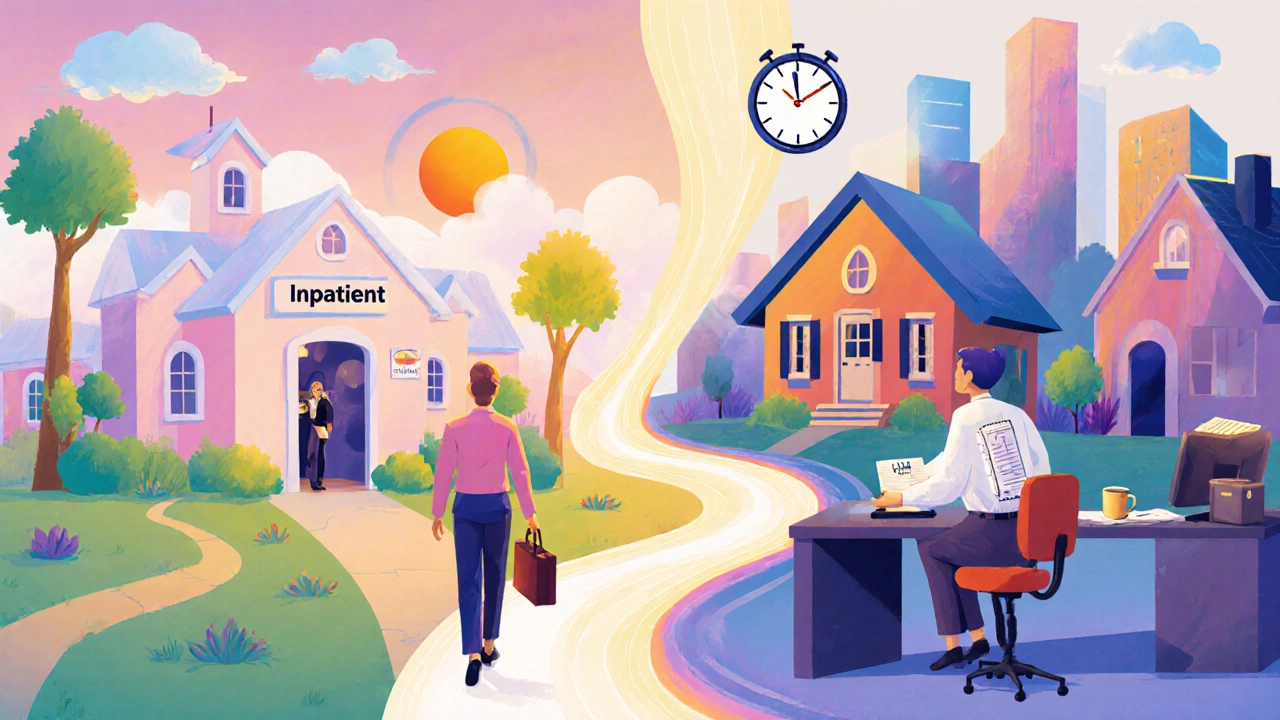Alcohol Rehab Benefits: Why Treatment Works
When talking about Alcohol Rehab Benefits, the positive changes that come from structured recovery programs for people struggling with alcohol use disorder. Also known as rehab advantages, these benefits touch physical health, mental clarity, and social stability.
One of the first gains is physical recovery. During a medically supervised detox, the body clears out alcohol toxins, blood pressure normalizes, and liver enzymes start to improve. Medications such as Disulfiram, a deterrent that makes drinking uncomfortable are often added to keep cravings at bay. The combination of detox and targeted drugs creates a clear semantic triple: Alcohol Rehab Benefits encompass detoxification, medication support, and long‑term health improvement. Patients report fewer headaches, better sleep, and a noticeable rise in energy within weeks.
Beyond the body, the mind gets a welcome reset. Structured programs teach coping skills, stress‑management techniques, and cognitive‑behavioral strategies that protect against relapse. This directly boosts Psychological Well‑Being, the overall emotional stability and resilience that a sober lifestyle fosters. A common semantic link is: Improved mental health enhances treatment adherence. Therapy sessions, mindfulness drills, and peer discussions all contribute to reduced anxiety, clearer thinking, and a stronger sense of self‑worth.
Social renewal is another cornerstone. Leaving the drinking scene often means rebuilding relationships that were strained or broken. Recovery Support Groups, regular meetings where people share experiences and encourage each other provide a safe space for honest conversation. The semantic triple here reads: Support groups foster community connection, which in turn improves psychological well‑being. Members gain accountability partners, learn from others' success stories, and develop a network that can catch them before a slip‑up turns into a relapse.
When programs are designed as comprehensive Addiction Treatment Programs, integrated plans that combine medical care, counseling, and after‑care services, the odds of staying sober rise dramatically. Studies show that individuals who complete a full program have up to a 50% lower chance of returning to heavy drinking compared to those who quit on their own. This relationship forms another triple: Comprehensive programs reduce relapse risk and increase long‑term employment stability. The blend of inpatient care, outpatient counseling, and follow‑up check‑ins creates a safety net that keeps progress steady.
Financially, the benefits pay off too. While rehab can seem pricey, many insurers cover a large portion of the cost, and the long‑term savings from fewer hospital visits, lower crime rates, and improved work performance are significant. In economic terms, each dollar spent on treatment often saves several dollars in downstream health and social expenses. This creates a clear cause‑effect triple: Investment in rehab leads to reduced healthcare costs and greater productivity. For families, the ripple effect includes less strain, more stable home environments, and better overall quality of life.
Putting all pieces together, the journey through rehab is a multi‑layered process that addresses body, mind, and community. Whether you’re considering the medication Disulfiram, joining a Recovery Support Group, or enrolling in a full Addiction Treatment Program, each step builds on the last to create lasting change. The synergy of detox, therapy, and peer support is what turns short‑term abstinence into a sustainable new lifestyle.
Below you’ll find a curated collection of articles that dig deeper into each of these angles—medication insights, mental‑health strategies, program comparisons, and real‑world success stories. Explore the resources to see how the benefits of alcohol rehab can fit into your own path to recovery.

